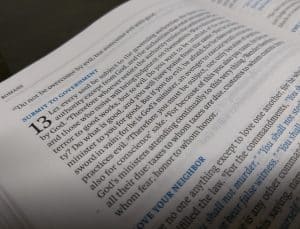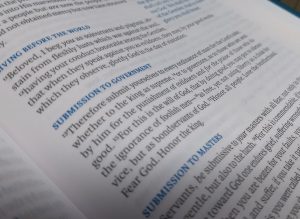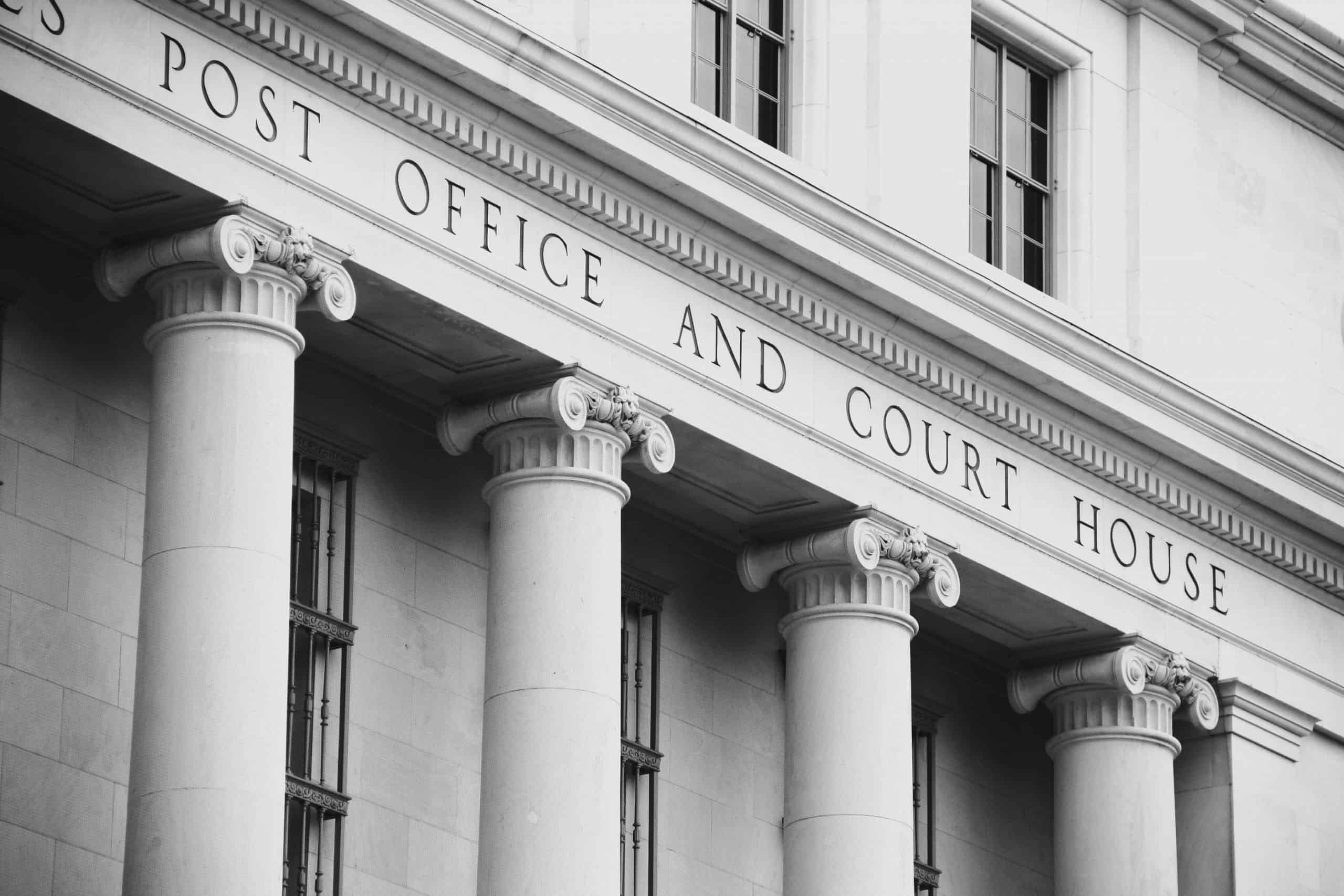Government is not a creation of man’s ambition and will, but of Divine constitution, and from a necessity in the nature of things. The very being and welfare of society depends thereon..…In a word, magistracy, like the other ordinances of Heaven, stands by the power and blessing of God, who effectually owns it and works by it, establishes the Earth and it abides.
—clergyman Benjamin Colman, in a sermon titled “Government the Pillar of the Earth,” which he delivered on August 13, 1730, at the start of Governor Jonathan Belcher’s tenure as royal governor of the Massachusetts and New Hampshire colonies—
Key points: Because the authority and power government wields has been delegated to it by God, government does not possess absolute power. God will hold civil magistrates accountable for how they used their authority and how well they represented Him in doing their jobs. Christians must remember that as they are under God, so are the civil authorities. Especially in the United States, Christians need to push back—sometimes quite forcefully—against leaders who abuse their power. In America, leaders are accountable, not just to God, but also to the people they govern and represent.
Parts 1 and 2 of this series are available on one page here.
What is the purpose of government? What are the duties of the Christian before government and God? When government opposes God, what should believers do?
Last time we began exploring two passages of Scripture that help us arrive at a biblical understanding of the issues raised by these questions. They are Romans 13:1-7 and 1 Peter 2:13-17.
 Romans 13:1Let every soul be subject to the governing authorities. For there is no authority except from God, and the authorities that exist are appointed by God. 2Therefore whoever resists the authority resists the ordinance of God, and those who resist will bring judgment on themselves. 3For rulers are not a terror to good works, but to evil. Do you want to be unafraid of the authority? Do what is good, and you will have praise from the same. 4For he is God’s minister to you for good. But if you do evil, be afraid; for he does not bear the sword in vain; for he is God’s minister, an avenger to execute wrath on him who practices evil. 5Therefore you must be subject, not only because of wrath but also for conscience’ sake. 6For because of this you also pay taxes, for they are God’s ministers attending continually to this very thing. 7Render therefore to all their due: taxes to whom taxes are due, customs to whom customs, fear to whom fear, honor to whom honor.
Romans 13:1Let every soul be subject to the governing authorities. For there is no authority except from God, and the authorities that exist are appointed by God. 2Therefore whoever resists the authority resists the ordinance of God, and those who resist will bring judgment on themselves. 3For rulers are not a terror to good works, but to evil. Do you want to be unafraid of the authority? Do what is good, and you will have praise from the same. 4For he is God’s minister to you for good. But if you do evil, be afraid; for he does not bear the sword in vain; for he is God’s minister, an avenger to execute wrath on him who practices evil. 5Therefore you must be subject, not only because of wrath but also for conscience’ sake. 6For because of this you also pay taxes, for they are God’s ministers attending continually to this very thing. 7Render therefore to all their due: taxes to whom taxes are due, customs to whom customs, fear to whom fear, honor to whom honor.
 1 Peter 2:13Therefore submit yourselves to every ordinance of man for the Lord’s sake, whether to the king as supreme, 14or to governors, as to those who are sent by him for the punishment of evildoers and for the praise of those who do good. 15For this is the will of God, that by doing good you may put to silence the ignorance of foolish men— 16as free, yet not using liberty as a cloak for vice, but as bondservants of God. 17Honor all people. Love the brotherhood. Fear God. Honor the king.
1 Peter 2:13Therefore submit yourselves to every ordinance of man for the Lord’s sake, whether to the king as supreme, 14or to governors, as to those who are sent by him for the punishment of evildoers and for the praise of those who do good. 15For this is the will of God, that by doing good you may put to silence the ignorance of foolish men— 16as free, yet not using liberty as a cloak for vice, but as bondservants of God. 17Honor all people. Love the brotherhood. Fear God. Honor the king.
Here are the observations we made.
-
-
-
- Everyone is to obey governmental authorities.
- Governments and the leaders who represent them are “appointed by God”; therefore resisting them is resisting “the ordinance of God.”
- God will judge those who disobey civil authorities.
- Government’s power is not absolute, however. Governments and their leaders have the authority they have because God has delegated it to them.
- God has delegated authority to government and its human representatives so they can and will commend those who do good and punish those who do evil. Good and evil here mean good and evil according to God’s standard, not man’s.
- God wants nations to maintain societal order.
- God wants the people of a country to be free, to enjoy authentic liberty. Such liberty is tied to obedience to His laws.
-
-
We also said this:
According to Scripture, government exists primarily to punish those who do evil and to commend or reward those who do good. As it does these things, it also maintains order in society. Further, it upholds and protects the unalienable, God-given rights of its people, whom the Creator fashioned in His image.
Of course, other legitimate tasks exist for government, such as maintaining a military force to defend the country and maintaining monetary and economic systems. These are implicitly affirmed in the Bible, as they are assumed legitimate governmental tasks. What government is not authorized to do in Scripture is provide for its people. That is a job God gives to the people themselves.
You now know God’s purpose for government. Memorize it. Far too few Christians know it.
According to Scripture, government exists primarily to punish those who do evil and to commend or reward those who do good. As it does these things, it also maintains order in society. Further, it upholds and protects the unalienable, God-given rights of its people, whom the Creator fashioned in His image.
Let’s now add three more items to our list.
Civil Authorities Are Accountable to God
Eighth, God does not give civil leaders authority to rule arbitrarily. They are accountable to Him and His laws. It is critical that we understand this. Because their authority is divinely delegated, those who fulfill leadership roles in government are not authorized to do anything they please. They are the Lord’s agents with God-given responsibilities.

At the top, we cited a quotation from a sermon preached by Benjamin Coleman in the early years of America’s founding era. In the same sermon, which he preached on August 13, 1730, Rev. Coleman said this:
Are rulers the pillars of the earth; are they the Lord’s? And has He set the world upon them? Let all that are in public offices consider their obligations to be PILLARS in the places wherein Providence has set them.
Let rulers consider what they owe to God, who has reared and set them up, and to the public which God has set upon them. Let them seek wisdom and strength, grace and conduct from God, that they may answer the title given them in my text [Rom. 13:1-5]. Let them stand and bear and act for God, whose they are and who has set them where they are. Let the public good be their just care, that it may be seen that God has set the world in their hearts as well as laid it on their shoulders. Let them act uprightly, that they may stand secure and strong. Let them fear God and rule by His Word, that they may be approved by God and accepted always by men with all thankfulness.
As government is the pillar of the earth, so religion is the pillar of government. Take away the fear of God’s government and judgment, and human rule utterly falls or corrupts into tyranny. But if religion rules in the hearts and lives of rulers, God will have glory, and the people be made happy.
Thus, separating government’s God-given authority from its specific, God-given responsibilities is unbiblical—every bit as unbiblical as putting a wedge between
-
-
- the divinely assigned task of every citizen — “every soul” — to obey government and
- his or her duty to obey government because that duty is God-given has a God-ordained purpose.
-
A Christian’s obligation to obey government does not stand alone, but is tied to his duty to obey God, “for conscience’ sake.”

Here’s the reality. Obeying government is obeying God when government does what God designed it to do! Of course, no government performs its job perfectly, but citizens, including believers, understand this. There’s a big difference between a government’s doing it’s job imperfectly and failing to do it altogether. When government fails to do its divinely assigned task of keeping order by commending those who do good and punishing those who do evil, and especially when it ignores or rewards evildoers and punishes those who do good, it is misusing its delegated authority, and its actions are illegitimate. Sad to say, we are living at a time in American history when government, in many instances, has abused its authority and is acting illegitimately. The Supreme Court’s decision authorizing same-sex “marriage” is one example, but many exist.1 Decades ago, Christian philosopher Francis Schaeffer put it this way.
God has ordained the state as a delegated authority; it is not autonomous. The state is to be an agent of justice, to restrain evil by punishing the wrongdoer, and to protect the good in society. When it does the reverse, it has no proper authority. It is then a usurped authority and as such it becomes lawless and is tyranny.
Therefore, we cannot say that the Christian has an obligation to obey government without also remembering that government is under God and is obligated to responsibly use, and not abuse, it’s God-given power.
We should be aware that in Scripture we see numerous instances of civil disobedience that God honored because the state had abused its authority and godly people pushed back, upholding God’s law and God’s truth. As Peter told the Jewish council, “We ought to obey God rather than men.”
When government fails to do its divinely assigned task of keeping order by commending those who do good and punishing those who do evil, and especially when it ignores or rewards evildoers and punishes those who do good, it is misusing its delegated authority, and its actions are illegitimate.
At the same time, we must hasten to add that civil disobedience is a serious matter that must never be taken lightly. A bedrock principle is that forever and and always, Christians have a primary duty to obey God. This means believers must disobey government when it directly mandates an action God forbids, or when it prohibits an action He commands.
Should we as Christians ever disobey civil authorities short of this threshold? In other words, must we always obey the state unless we have an explicit command from God that conflicts directly and specifically with what the state has said we must or must not do? Gary DeMar touches on issues related to this question in this article, which I would encourage you to read. In certain instances in the Bible, people disobeyed the government and obeyed God based on principles they knew were right, principles that conflicted with the government’s posture and general actions. Consider the successful efforts of Moses’ parents to keep their infant son safe from Pharaoh’s wrath and Rahab’s hiding the Israelite spies and lying about their whereabouts.

Daniel’s disobeying the order of King Darius in Daniel 6 also is worth considering at this point, because it indicates that sometimes being openly defiant is the right approach, even though a smoother and safer course of action was available. Darius ordered that for thirty days, “whoever petitions any god or man” other than the king himself “shall be cast into the den of lions” (v. 7). Daniel could have disobeyed this order in secret, but he did not: “Now when Daniel knew that the writing was signed, he went home. And in his upper room, with his windows open toward Jerusalem, he knelt down on his knees three times that day, and prayed and gave thanks before his God, as was his custom since early days” (v. 10). God honored Daniel and his actions by keeping him safe, even when he was surrounded by hungry lions!
The issue of civil disobedience, therefore, calls for discernment. Bible study, prayers for wisdom, and giving careful attention to one’s conscience before God are all warranted. So is a resolve to honor God, even when doing so is costly.
That said, we must keep in mind as well that even ungodly governments can maintain order in society, commending those who do good and punishing those who do evil in the broadest, general sense—even though, obviously, ungodly governments don’t have a thorough, biblical understanding of right and wrong. Peter and Paul wrote what they did about government and its authority during a time when persecution of Christians was quite real. Despite this, Paul acknowledged that “there is no authority except from God, and the authorities that exist are appointed by God” (Rom. 13:1). The reality that God is sovereign should constantly reassure believers, yet it never should lull them into passivity when positive actions are genuinely needed.
In the United States, Civil Authorities Also Are Accountable to the People
 Ninth, as Christians who live in the United States of America, we must interpret Romans 13 and 1 Peter 2:13-17 in light of our form of government. We do not have a form of government that gives its leaders absolute authority. Instead, citizens and leaders alike live under the law.2 Pastor Cary Gordon explains.
Ninth, as Christians who live in the United States of America, we must interpret Romans 13 and 1 Peter 2:13-17 in light of our form of government. We do not have a form of government that gives its leaders absolute authority. Instead, citizens and leaders alike live under the law.2 Pastor Cary Gordon explains.
You must apply Romans 13 correctly in our American form of Government.
In a Constitutional Republic, we have no king. The law is the king. Specifically, our “king” is the Constitution. Your rulers must obey it just like you must obey it.
If they tell you to do something that is unConstitutional, you must reject their abuse of authority, else, you too become disobedient to our proverbial “King” of the Constitution.
The Constitution merely organizes and limits power and borrows its power on loan from the Declaration.
The Declaration explains the origin of its own power as being vested in the people, and the people’s power is carefully noted to come from the Supreme Creator Himself.
Thus, the citizen is at the very top of authority in a Republic, “under God,” not a president, or a governor, or a mayor. Those persons are employees of the uniquely created sacred individual person who is “under God.”
Tenth, in a free society such as ours, we as Christians can and should — indeed we must — hold our leaders accountable. We have a duty to use our God-given and government-recognized right to free speech to oppose evil and to promote good in society. This means participating in the political process to elect leaders who will make laws consistent with God’s laws and who will not abuse their God-given authority. Further, it means seeking to influence those who are elected to use their authority and influence wisely and well.
There are times, however, when it won’t mean “being nice.” When leaders blatantly abuse their power, Christians must push back forcefully, reminding them
-
-
- that their authority is limited,
- that they are bound by the US Constitution,
- that they work for the people, and even
- that they are accountable to God.
-
In certain instances, this also may mean engaging in civil disobedience. Remember, we are talking about a government representative who has blatantly abused his or her power. May God give us the wisdom and courage we will need in those situations.
In a free society such as ours, when government leaders abuse their God-given authority, Christians are obligated to call them out.
Surely when we as American Christians do these things, we are obeying Jesus’ command to “Render therefore to Caesar the things that are Caesar’s, and to God the things that are God’s” (Matt. 22:21).
To Whom—or What—Do You Belong?
We do well to recall the context of Jesus’ admonition to render to Caesar that which is His, and to God that which is His. In Matthew 22:15-22, Pharisees who were trying to trap Jesus asked Him if it was lawful to pay taxes to Caesar. Jesus asked them to show Him a coin, and when they did, He asked them whose image and inscription it bore. “Caesar’s,” they said. It was then Jesus told them, “Render therefore to Caesar the things that are Caesar’s, and to God the things that are God’s.”
Against this backdrop, we are prompted to ask this about each individual person.
Whose image does he or she bear?
The answer, of course, is God’s!
Government has a claim on some things, but it has no claim on that which belongs to God.3 God made people in His image. They are not the property of the state; they belong to God. This is especially true of believers, who are God’s by virtue of His having created them, and also His by virtue of His having redeemed them through Jesus’ substitutionary death on the cross.

The Bottom Line
Christians have a duty to obey government, but their first responsibility is to obey God. Moreover, government also is accountable to God. Its authority is not absolute.
Only God’s authority is absolute.
Copyright © 2020 by B. Nathaniel Sullivan. All rights reserved.
Go here for a complete list of the principles we have reviewed, as well as a three-item summary of both articles.
Unless otherwise indicated, Scripture has been taken from the New King James Version®. Copyright © 1982 by Thomas Nelson, Inc. Used by permission. All rights reserved.
Note:
1Here are some additional examples of governmental abuse of delegated authority. Justices at the Supreme Court acted illegitimately with regard to abortion in Roe v. Wade and Doe v. Bolton. In Obergefell (the decision that mandated recognition of same-sex marriage nationwide), it wasn’t just the Supreme Court acting illegitimately. The lower courts also abused their authority in a multitude of judicial actions leading up to Obergefell. Here’s an example of the Obama Administration’s issuing an executive order contrary to God’s law, the US Constitution, and the welfare of the people. Especially in a health crisis, this kind of abuse of power accelerates (go here, here, here, and here).
2See principle #9 in this post.
3Accordingly, a decade ago when some forward-thinking Christian leaders saw the threat of government encroachment on the horizon, they drafted and released The Manhattan Declaration: A Call of Christian Conscience. The concluding sentence of this statement that drew a line in the sand is this: “We will fully and ungrudgingly render to Caesar what is Caesar’s. But under no circumstances will we render to Caesar what is God’s.”
top image credit: Lightstock

Be First to Comment